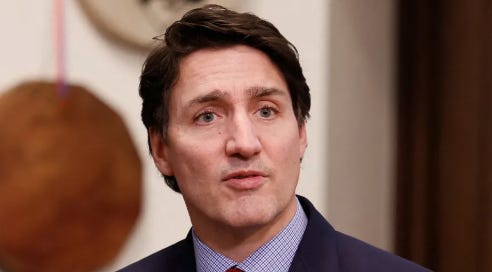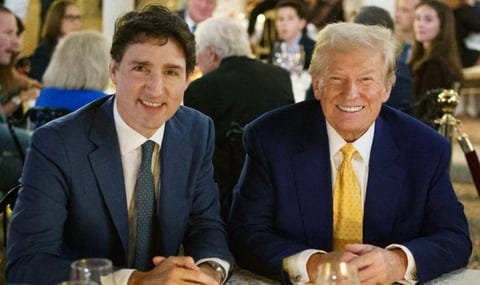Diplomacy is often a world of planned whispers and subtle signals to communicate complex messages. So, even sleepy folks noticed when the PM made a much-publicized bold (and seemingly impromptu) move and flew to Florida to play Trump-Whisperer. What was the PM hoping to get from that appearance?
The best way to evaluate such diplomatic moves is to measure results against expectations.
From start to finish, the trip read like Trump’s move, when the president flew in a similarly bold and unanticipated fashion to pacify the leader of North Korea, Kim Jong-un — the “Little Rocketman.” Trudeau’s trip to see Trump was modelled on Trump’s Korean trip; it was an attempt to out-Trump Trump. That was the expectation.
Amid talk of nuclear weapons deployment, Trump surprised the world in 2017 by going to North Korea to meet with the leader of the most insular country on the planet, a man the traditional media painted as an irrational lunatic. (Not unlike the image of Donald Trump that the CBC and th…
Keep reading with a 7-day free trial
Subscribe to Haultain Research to keep reading this post and get 7 days of free access to the full post archives.




